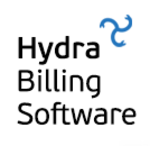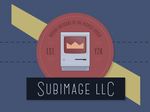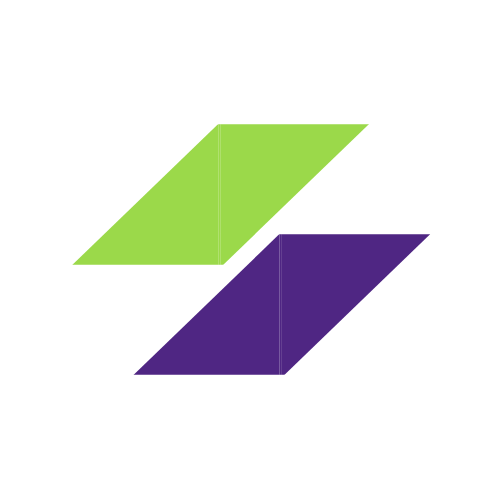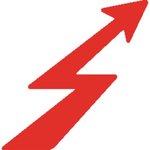Description

Hydra Billing

Cashboard
Comprehensive Overview: Hydra Billing vs Cashboard
As of my knowledge update in October 2023, detailed information on Hydra Billing and Cashboard may vary, so please verify with the most recent data or directly from the companies involved. Here's a general overview and comparison based on typical software offerings that might be in the same realm.
a) Primary Functions and Target Markets
Hydra Billing:
-
Primary Functions:
- Comprehensive billing management for subscriptions and recurring payments.
- Automated invoicing, payment processing, and financial reporting.
- Integration capabilities with other enterprise systems (like CRM and ERP).
- Scalability to handle large volumes of transactions.
-
Target Markets:
- Businesses with complex billing needs, such as telecommunications, utilities, cloud services, and SaaS companies.
- Enterprises requiring highly customizable billing solutions to accommodate different service offerings.
Cashboard:
-
Primary Functions:
- Financial management, budgeting, and invoicing.
- Time tracking and project management features tailored for freelancers and small businesses.
- Client management and engagement tools.
- Integrated payment gateways for seamless transaction handling.
-
Target Markets:
- Freelancers, small and medium-sized enterprises (SMEs), and creative agencies.
- Professionals needing straightforward billing, project management, and client management capabilities.
b) Market Share and User Base
Market share and user base information can vary, and specific figures often require access to proprietary market research or company reports. However, based on typical offerings:
-
Hydra Billing likely serves a smaller niche within the enterprise market focused on industries with complex billing needs. Its user base would generally comprise larger enterprises or specialized industry players.
-
Cashboard is more oriented towards individual professionals and small businesses, potentially achieving a larger user base in terms of numbers due to the vast population of freelancers and SME users but with smaller transaction volumes compared to enterprise solutions like Hydra Billing.
c) Key Differentiating Factors
-
Complexity vs. Simplicity:
- Hydra Billing stands out with its ability to handle complex and large-scale billing scenarios, making it crucial for industries with intricate billing structures.
- Cashboard offers simplicity and ease of use, particularly valuable to freelancers and small businesses looking for straightforward financial and project management solutions.
-
Integration and Customization:
- Hydra Billing typically provides more robust integration capabilities and customization options to fit into larger IT ecosystems.
- Cashboard focuses on easy setup and use without the need for extensive customization, making it more attractive to users with limited IT resources.
-
Feature Focus:
- Hydra Billing may prioritize features like scalability and reliability under high transaction volumes.
- Cashboard concentrates on providing a user-friendly interface with essential tools for managing small business finances and client interactions.
Understanding these differences helps organizations choose the right tool based on their specific needs, industry requirements, and business size. Always refer to the latest company documentation or industry reviews for up-to-date comparisons and analyses.
Contact Info

Year founded :
Not Available
Not Available
Not Available
Bulgaria
http://www.linkedin.com/company/hydra-billing-solutions

Year founded :
Not Available
Not Available
Not Available
Kenya
Not Available
Feature Similarity Breakdown: Hydra Billing, Cashboard
To provide a feature similarity breakdown for Hydra Billing and Cashboard, we'll focus on the core features, user interfaces, and unique features that distinguish these products. Please note that the information available might not be as current or comprehensive due to the evolving nature of software products.
a) Core Features in Common
1. Invoicing and Billing:
- Both Hydra Billing and Cashboard provide robust invoicing and billing capabilities. Users can create, send, and track invoices efficiently.
2. Payment Processing:
- Integration with various payment gateways is a common feature, allowing users to process payments securely and quickly.
3. Client Management:
- Both platforms offer tools to manage client information, track client interactions, and store client-specific data.
4. Reporting and Analytics:
- Standardized reporting features are available to help users understand financial data, track performance metrics, and gain insights into business operations.
5. Recurring Billing:
- Support for creating and managing recurring payments is included, which is critical for businesses that offer subscription-based services.
6. Time Tracking (if applicable):
- If time tracking is relevant to the user base, both systems may offer built-in time tracking or integration with popular time-tracking software.
b) User Interface Comparison
Hydra Billing:
- Emphasizes functionality and efficiency with a straightforward layout.
- The design might focus on ease of navigation, allowing users to access billing features with minimal steps.
- Customizable dashboards could be part of their offering, catering to diverse business needs.
Cashboard:
- Typically known for being user-friendly with a more modern and visually appealing design.
- Might offer more visual analytics and easier access to project management features if it targets freelancers or creative professionals.
- Focus on simplicity and intuitiveness, especially for small business owners who may not be tech-savvy.
c) Unique Features
Hydra Billing:
- Might be specifically tailored for telecom, ISP, or utility billing which involves supporting complex usage-based billing models.
- Possibly includes support for specialized accounting standards or requirements based on regional needs.
Cashboard:
- Known for offering project management features, which might include task management, project timelines, and collaboration tools.
- Could provide industry-specific templates or customization options tailored for creative industries like design firms or agencies.
Conclusion
While both platforms share fundamental billing and invoicing capabilities, their strengths diverge with respect to target audiences and unique offerings: Hydra Billing potentially excels in handling industry-specific billing complexities, whereas Cashboard shines in its usability and project management integrations, appealing to small businesses and freelancers.
Features

User-Friendly Dashboard
Flexible Payment Options
Customer Management
Automated Billing Cycles
Comprehensive Reporting

Financial Management
Project Management
Client Management
Reporting and Analytics
Time Tracking
Expense Tracking
Financial Reports
Invoicing
Best Fit Use Cases: Hydra Billing, Cashboard
When evaluating the best fit use cases for Hydra Billing and Cashboard, it's important to consider their strengths, features, and primary target audiences. Both tools cater to different needs and scenarios for businesses and projects.
Hydra Billing
a) For what types of businesses or projects is Hydra Billing the best choice?
Hydra Billing is ideally suited for:
-
Telecom and Subscription-Based Services: Hydra Billing is particularly well-suited for telecom providers or any subscription-based businesses requiring robust billing solutions. It manages complex billing cycles and varied pricing models effectively.
-
Utilities and Energy Providers: Companies in this sector often require flexible billing systems to handle tiered pricing and consumption-based invoicing, which Hydra Billing can efficiently support.
-
Large Enterprises: Organizations with a vast customer base and intricate billing needs benefit from Hydra Billing's scalability and integration capabilities with other enterprise systems.
-
Businesses with Complex Pricing Structures: Hydra Billing shines in environments where businesses need to apply different rates, discounts, and promotions, requiring a sophisticated and adaptable billing system.
Cashboard
b) In what scenarios would Cashboard be the preferred option?
Cashboard is a better fit for:
-
Freelancers and Small Agencies: It is designed to cater to individuals and small teams who need simple invoicing and project management tools. The platform integrates time tracking with billing, making it easy for freelancers to bill clients accurately.
-
Creative and Service-Based Industries: Agencies involved in creative fields like design, marketing, and consulting benefit from Cashboard’s intuitive interface and project-centric features.
-
Small to Medium Businesses (SMBs): SMBs looking for an all-in-one tool that combines invoicing, project management, and time tracking might find Cashboard a valuable asset due to its comprehensive yet straightforward approach.
-
Project-Based Billing: Businesses that primarily operate on a per-project billing basis will find Cashboard’s offerings aligned with their needs, thanks to its focus on managing projects and related financials seamlessly.
d) How do these products cater to different industry verticals or company sizes?
Hydra Billing:
-
Industry Verticals: Primarily caters to industries with complex billing requirements such as telecommunications, utilities, and other subscription-based sectors. These industries benefit from its customizable billing system, which can handle multi-tier pricing and mass billing operations.
-
Company Sizes: Targets large enterprises and mid-sized companies that need advanced billing capabilities and system integrations, providing them with the flexibility to scale.
Cashboard:
-
Industry Verticals: Focused on creative, consulting, and service-oriented industries where project tracking and client billing are essential. Offers features that suit the typical workflow of these sectors.
-
Company Sizes: Best for freelancers, small agencies, and SMBs that require simple, efficient tools to manage projects and client finances without the need for heavy integrations or complex configurations.
Each product offers distinct advantages and functionalities tailored to particular business needs, making them better suited for different use cases and company sizes.
Pricing

Pricing Not Available

Pricing Not Available
Metrics History
Metrics History
Comparing teamSize across companies
Conclusion & Final Verdict: Hydra Billing vs Cashboard
When evaluating billing software like Hydra Billing and Cashboard, it's important to consider various factors such as features, usability, cost, customer support, and scalability to determine the best overall value for a business's specific needs.
Conclusion and Final Verdict
a) Considering all factors, which product offers the best overall value?
The choice between Hydra Billing and Cashboard largely depends on the specific needs and use cases of the business. If a business requires robust features and scalability for complex billing processes and has a tech-savvy team, Hydra Billing might offer greater value. On the other hand, if a business prioritizes ease of use and an intuitive interface, especially for freelancers or small businesses, Cashboard can provide better overall value.
b) Pros and Cons of Choosing Each Product
Hydra Billing:
-
Pros:
- Comprehensive Features: Offers extensive features tailored for complex billing and invoicing needs.
- Customization and Scalability: Highly customizable and can scale with business needs, making it suitable for growing companies.
- Robust Reporting and Analytics: Provides detailed insights into billing data, which is useful for data-driven decision-making.
-
Cons:
- Complexity: May have a steeper learning curve, requiring more time and resources to train staff.
- Implementation Costs: Can be more expensive upfront, particularly for small businesses with limited budgets.
- Overwhelming for Small Businesses: Might be overkill for smaller enterprises with simpler needs.
Cashboard:
-
Pros:
- User-Friendly Interface: Easy to navigate, making it ideal for freelancers and small businesses.
- Affordability: Generally more budget-friendly, especially appealing to smaller enterprises.
- Excellent for Project Management: Offers time-tracking and project management features that integrate well with billing.
-
Cons:
- Limited Scalability: May not be suitable for larger businesses or those expecting rapid growth due to limited advanced features.
- Basic Reporting: Lacks in-depth reporting and analytics compared to more robust systems.
- Feature Limitations: Might not support very complex billing scenarios or integrations.
c) Recommendations for Users Trying to Decide Between Hydra Billing vs Cashboard
-
Assess Business Needs: Users should start by evaluating the specific needs of their business, including the complexity of their billing processes, budget constraints, and growth plans.
-
Consider Scalability: Businesses anticipating significant growth should consider Hydra Billing's robust features and scalability, whereas small businesses or freelancers might find Cashboard's simplicity and cost-effectiveness appealing.
-
Evaluate Technical Expertise: Consider the technical expertise available within the organization. A business with a tech-savvy workforce may better handle Hydra Billing's comprehensive system, while a less technical team might prefer Cashboard's straightforward setup.
-
Trial Periods and Demos: Take advantage of free trials or demos offered by both platforms. This hands-on experience can provide valuable insights into which software aligns better with the business’s workflow.
-
Seek Peer Recommendations: Consulting with similar businesses or industry peers can provide real-world feedback and help gauge satisfaction levels with each software solution.
Ultimately, both Hydra Billing and Cashboard have unique strengths that cater to different market segments. By closely aligning the software's capabilities with business objectives and operational requirements, users can make a more informed decision that maximizes value.
Add to compare
Add similar companies




